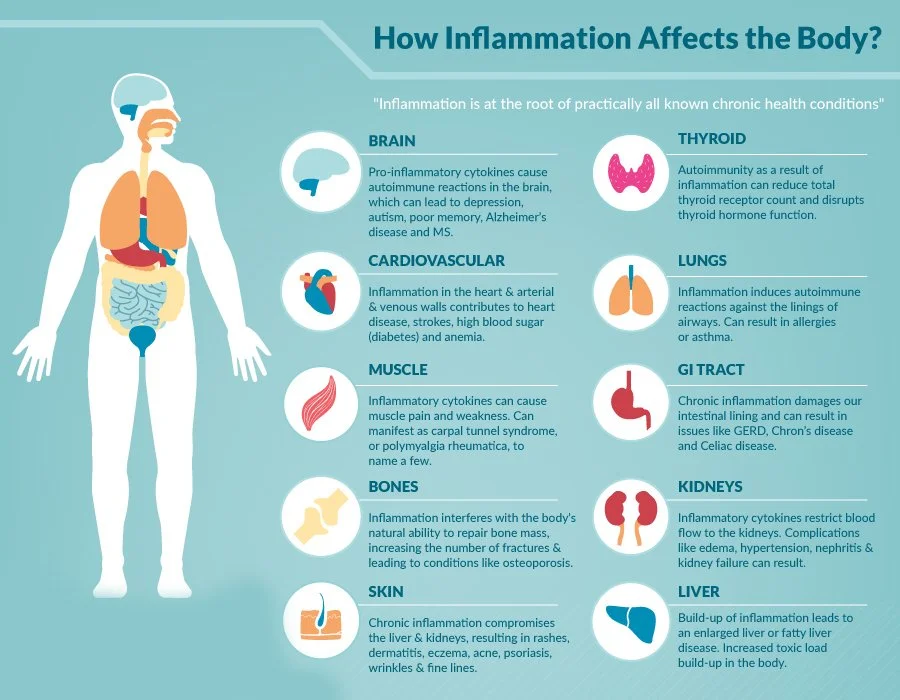Curcumin: The Cure to Inflammaging
Curcumin is a relatively common name in the longevity world and for good reason. It isn’t some longevity and health newcomer; it has been appreciated by civilization after civilization for thousands of years. Also referred to as turmeric (curcumin is the main active ingredient in turmeric), people have been cooking with these spices for ages.
In Ayurvedic medicine, turmeric was used to treat respiratory conditions, liver disorders, diabetic wounds, and more. In traditional Chinese medicine, it has been used to treat abdominal pain. Unani practitioners used turmeric to improve overall blood circulation (Prasad, 2011).
The moral of that short story is that curcumin isn’t new. It has been appreciated for its health benefits for centuries, and it's only within the last 200 years that scientists have been able to determine exactly why and the extent to which curcumin is such a powerful supplement.
The question is, what exactly does curcumin do that makes it so amazing? The answer: it is a highly potent anti-inflammatory. But when you hear this, don’t compare it to over-the-counter medications like ibuprofen. Unlike ibuprofen, curcumin isn’t fast acting, it's cumulative, has no potential to harm your organs, and finally, it acts by modulating several cellular pathways as opposed to ibuprofen, which bluntly inhibits a single enzyme, often disrupting other protective processes in the body. Curcumin, by contrast, downregulates harmful inflammation, boosts antioxidant defenses, and restores balance without the collateral damage.
Life is stressful, we can all agree on that, but what we might not think about is how it manifests as stress to our bodies. Exercise, stress, smoke, injuries, and aging all lead to increased inflammation within our bodies. The cumulative damage from chronic inflammation can potentially accelerate the rate at which we age. Longevity experts have narrowed down the causes for aging into different silos, 7 tenets or 15 hallmarks depending on who you ask but one thing is for sure, chronic inflammation will worsen each and every one.
Chronic inflammation (inflammaging) is characterized by long-term but low levels of inflammation that, over time, cause significant harm to bodily functions.
INFLAMMATION: Understanding how it can affect your long-term health - Wellspring. Wellspring (Daniels, 2018).
The graphic above demonstrates how inflammation generally affects each organ (I would take the time to read it if I were you). However, at the cellular level, it increases the rate of epigenetic drift, increases the overall concentration of ROS (reactive oxygen species), shortens telomeres, damages DNA, reduces ATP production, alters cellular communication, impairs autophagy, and so much more. (Issa, 2014)(López-Otín, 2023).
Long story short, no good can come from keeping your body in an inflamed state. All of the downsides of being inflamed converge at one common enemy: cancer. Elevated levels of inflammation have been associated with heightened cancer risk (Caliri, 2021). Therefore, keeping inflammation low will lessen cancer risk. As we’ve previously determined, aging is cumulative. If you can reduce the levels of inflammation your body is at now, imagine how better off you’ll be in, say, 10 years.
Back to how I started this article, curcumin has proven time and time again that it has properties some cultures have described as out of this world. Having stood the test of time and research, it has been proven that curcumin can, in fact, reduce the levels of inflammation when taken consistently with no downsides.
More acutely, taking curcumin has proven to reduce soreness from exercise and lessen recovery time (Nicol, 2015). In a different vein, curcumin has become an option to minimize damage done from smoking, vaping, drinking, and other harmful activities (Sahar, 2023).
If this article has convinced you in some way or another that curcumin is worth a try, then make sure to look at the dose and bioavailability of whatever supplement you deem fit. Curcumin is naturally not very bioavailable, meaning even if you take a certain amount of it, only a small percentage makes its way into your bloodstream. Look for higher doses or liposomal curcumin. I’ll put the link below to the type that I trust and take every day.
References
Caliri, A. W., Tommasi, S., & Besaratinia, A. (2021). Relationships among smoking, oxidative stress, inflammation, macromolecular damage, and cancer. Mutation Research/Reviews in Mutation Research, 787, 108365. https://doi.org/10.1016/j.mrrev.2021.108365
Daniels, D. D. (2018, July 12). INFLAMMATION: Understanding how it can affect your long-term health - Wellspring. Wellspring. https://www.wellspringfmed.com/inflammation-understanding-how-it-can-affect-your-long-term-health/
Issa, J.-P. (2014). Aging and epigenetic drift: a vicious cycle. Journal of Clinical Investigation, 124(1), 24–29. https://doi.org/10.1172/jci69735
López-Otín, C., Blasco, M. A., Partridge, L., Serrano, M., & Kroemer, G. (2023). Hallmarks of aging: An expanding universe. Cell, 186(2), 243–278. https://doi.org/10.1016/j.cell.2022.11.001
Nicol, L. M., Rowlands, D. S., Fazakerly, R., & Kellett, J. (2015). Curcumin supplementation likely attenuates delayed onset muscle soreness (DOMS). European Journal of Applied Physiology, 115(8), 1769–1777. https://doi.org/10.1007/s00421-015-3152-6
Prasad, S., & Aggarwal, B. B. (2011). Turmeric, the Golden Spice. Nih.gov; CRC Press/Taylor & Francis. https://www.ncbi.nlm.nih.gov/books/NBK92752/
Sahar Fanoudi, Mohaddeseh Sadat Alavi, Soghra Mehri, & Mahboobeh Ghasemzadeh Rahbardar. (2023). The protective effects of curcumin against cigarette smoke‐induced toxicity: A comprehensive review. Phytotherapy Research. https://doi.org/10.1002/ptr.8035

